100 Women: Can we wire our brains for confidence?
- Published
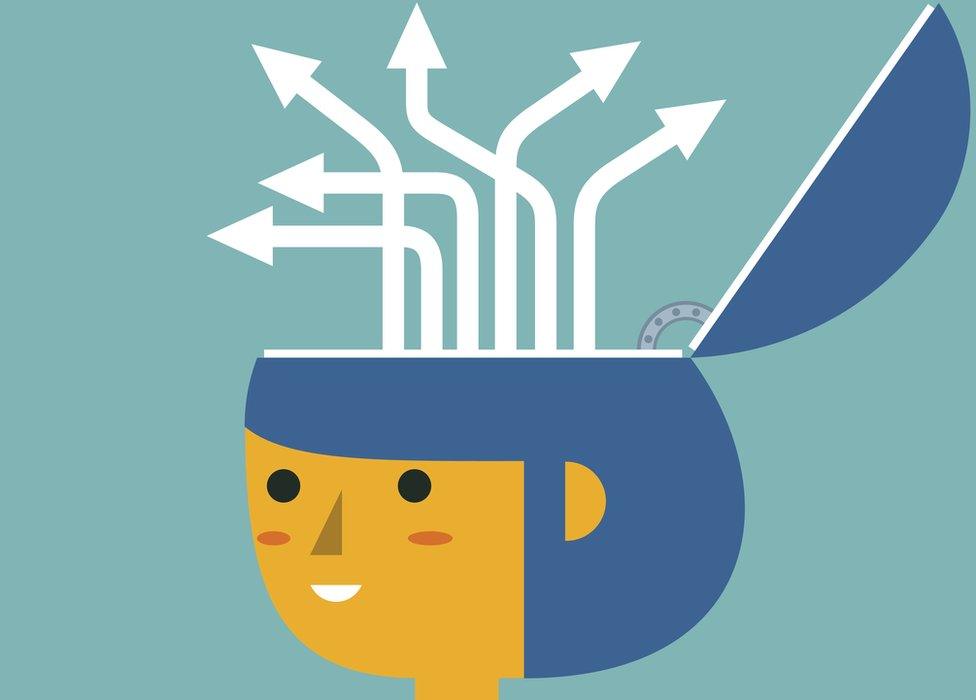
When we think about ourselves positively, we stimulate parts of our brains involved in reward, motivation, and pleasure, says Dr Stacie Grossman Bloom
Dr Stacie Grossman Bloom is a neuroscientist who has three daughters. She also has a successful career at NYU Langone Medical Center in New York. She has examined the role that neuroscience can play in boosting confidence. This is particularly useful to many women who need exactly that, she writes as part of this year's 100 Women Challenge.
Confidence is something that many women want, but don't know how to get. Yet, we need to embrace our abilities and our value and have self-esteem to be successful. Without it, we are less likely to seek promotion, speak up in meetings, and rise into leadership positions.
This ultimately has an enormous impact, as study after study shows that having women at work in positions of power correlates with profitability, more collaborative environments, and improved problem solving.
With some practice, we can use neuroscience to be more confident.


What is 100 Women?
BBC 100 Women names 100 influential and inspirational women around the world every year. In 2017, we're challenging them to tackle four of the biggest problems facing women today - the glass ceiling, female illiteracy, harassment in public spaces and sexism in sport.
With your help, they'll be coming up with real-life solutions and we want you to get involved with your ideas. Find us on Facebook, external, Instagram, external and Twitter, external and use #100Women

Think positive
We know that self-confidence, like all of our personality traits, resides within our brains. And while a large part of the architecture of our brains is predetermined, our experiences and the choices we make continue to shape us.
Over the course of our lives, we acquire new knowledge and abilities by modulating the intricate and malleable connections between the cells and circuits in our brains. We can utilise neuroscience to silence our negative inner voices and boost our confidence.
These strategies work by engaging the "value areas" of the brain.
When we think about ourselves positively, we are able to stimulate the parts of our brains that are involved in reward, motivation, and pleasure. One output of this pattern of neurological activation is that we literally feel good when we are confident, we hold our heads high.

Dr. Bloom with her three daughters
That feeling is contagious in that it also promotes those around us to be more engaged with us, whether that is our colleagues, our friends, or our troops. The reinforcing reactions we see and feel in response to our confidence also feed back to our brains to encourage more activity.
The first step is to push back against the obstacles we know stand in our way by being mindful of the situation, and deciding to be confident. Making that complex decision is a multi-step process that taps into our emotions and engages many other parts of the brain.
Train your brain
Once we have made the decision to be confident, we have to start training our brains.
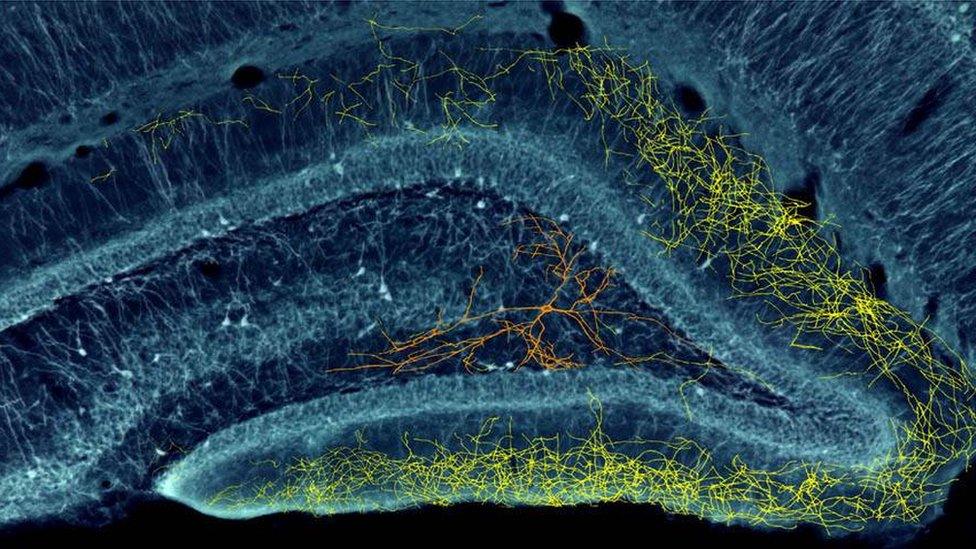
The orange structure here is one of billions of neurons. It is stretching out to make all the connections (synapses) you see in yellow (more than 75,000). Those connections are what we are tweaking when we learn to choose confidence
Just like mastering any other talent, gaining self-assurance requires repetition and time. Every time we do or learn something new, our brains adjust to store our new skill or bit of knowledge.
This happens because parts of our brains are plastic, and the synapses that connect our brain cells, called neurons, to each other can be modified, strengthened, and even newly created to store what we have acquired - in this case our confidence boost.
From a scientific perspective, women can blame both nature and nurture for stacking the odds against us when it comes to how we value ourselves compared to men. It is a biological reality that women secrete different levels of hormones than men, causing us to react differently to the same world around us.
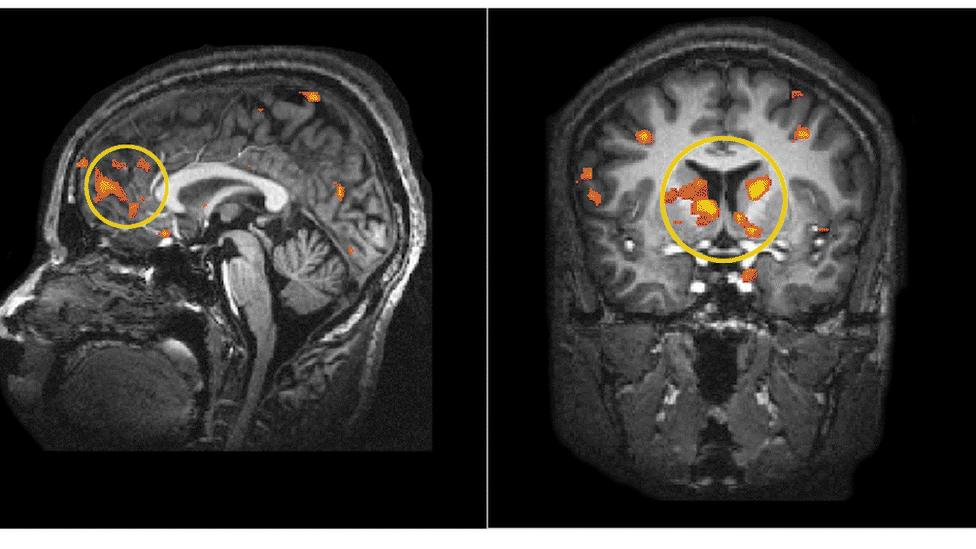
The areas of the brain in these images that are coloured to show they are activated are so-called “value areas” of the brain
Women tend to have a desire to please others, to seek acceptance and inclusion, and to avoid conflict. The way we respond to stressful situations is also different.
While men tend to take more risk under pressure, women look for surer successes and reach out to connect with others to manage stress.
Our genetic differences are compounded by the fact that we are socialised differently from the moment we are born and a pink hat is placed upon our heads.
Boys and girls
As we grow up, young women are not necessarily taught to exhibit self-confidence, and if we do, we are often criticized for being "snobby" or "stuck-up" or "bitchy" - words seldom associated with men.
We hear damaging terms like "women's intuition" suggesting that we aren't making strategic analyses, but basing our decisions on some ethereal gut feeling when study after study shows that women and men are equally data-driven.
And the relentless emphasis placed on how we look erodes our self-image and for most of us, gets worse over time.
As a mother of three young girls, this resonates with me every time my daughters receive yet another impossibly-proportioned doll designed for dress up, caregiving, or primping.
Are women hitting a glass ceiling, or are they also climbing a broken ladder?
It is well-documented that we way we raise our girls and women has a lasting impact on the way they view themselves and their abilities. Negative messages will engender self-doubt and lead us to underestimate ourselves.
The result is not only a nearly universal feeling of imposter syndrome, but a fear of making mistakes, a suspicion that we are underperforming, and an unattainable quest for perfection.
This is what we are shutting down when we make the decision to be confident.
Practice, practice
It doesn't matter what level of self-assurance you start at, the more time and effort you dedicate to practicing being more confident, the faster your brain will change and the faster you'll master it.
To start, it's important to remove ourselves from situations and people that make us feel bad because confidence largely comes from being in a supportive environment.
That environment comprises the people and environment around us and what we choose to focus our attention on.
It is beneficial to concentrate on things that are empowering and to steer clear of exposure to images and content that make us feel bad about ourselves.
The way we choose to hold and conduct ourselves is another factor.
Mental simulations also help - envisioning ourselves finishing a race, speaking in public to a standing ovation, mastering a job, getting a degree - can all help build ourselves up. Just as a coach gives an encouraging pep talk to the team before taking the field, we can give ourselves a confidence lift.
Notably, these practices have an impact on our overall health and wellbeing, serving as a buffer to stress and depression, and fostering good mental and physical health.
When we choose confidence, we are rewiring our brains and we are able to change ourselves, and maybe even the world, for the better.
Dr Stacie Grossman Bloom is Assistant Vice-President for Policy & Administration, and Associate Professor at the Department of Neuroscience & Physiology, NYU Langone Health.
- Published1 November 2017
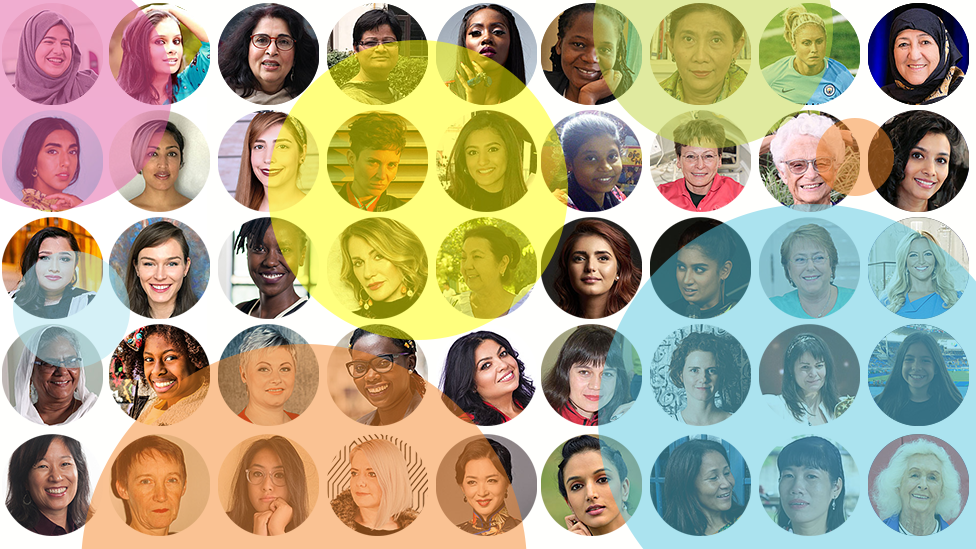
- Published4 October 2017

- Published1 October 2017
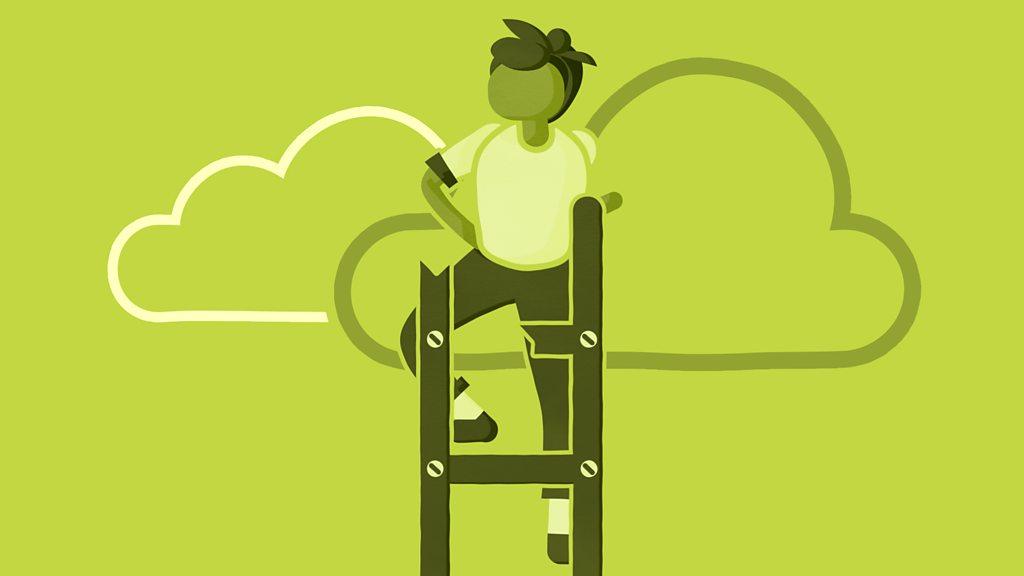
- Published3 October 2017

- Published27 September 2017

- Published2 October 2017

- Published2 October 2017

- Published2 October 2017
